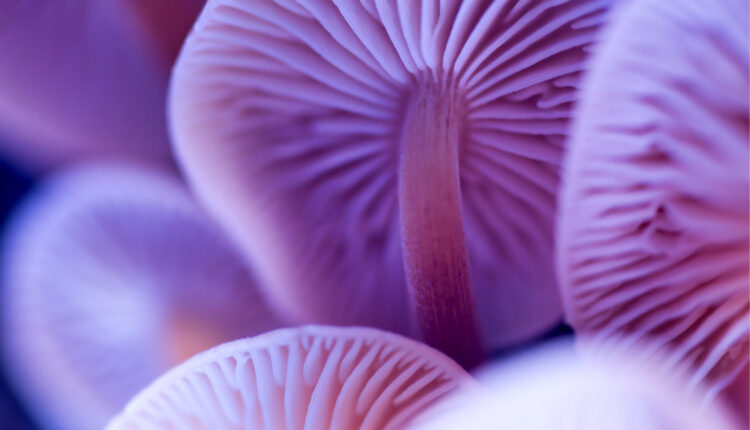
Ibogaine: Why This Anti-Addictive Psychedelic Could Help Treat More Than Substance Use
While the psychedelic renaissance has brought much attention to more popular drugs like psilocybin and MDMA, other hallucinogenic drugs, like the naturally occurring iboga and its active alkaloid ibogaine, have yet to have its moment.
Where It’s Found
The alkaloid iboga is found in the roots of the Tabernathe iboga shrub, which grows in the jungles of West Central Africa, primarily in Gabon. There, iboga is protected by law and used in Bwiti spiritual initiation ceremonies, with practices varying from one tribe and region to the next.
While in the West, iboga is recognized primarily for its anti-addictive properties, among the Bwiti religion it is used as an herbal medicine to diagnose and treat a much broader range of health issues. It’s also used to promote spiritual growth.
Recent History
Ibogaine was first extracted from iboga in 1901 and gained interest in France, where it was studied as an anti-fatigue drug before eventually being marketed under the name Lambarene. Described as a neuromuscular stimulant, it would be recommended for indications including “depression, asthenia, convalescence, infectious diseases, [and] abnormal intellectual or physical effort in a healthy individual.”[1] Athletes who used the drug would note that it gave them increased stamina.
In the 1960s, iboga and ibogaine wouldn’t gain the same attention as drugs like LSD or psilocybin, but that wouldn’t stop some people from trying to convince academics that the drug was worth studying. Dr. Leo Zeff, a psychologist and pioneer of psychedelic assisted therapy, would be introduced to the drug by Howard Lotsof, a former heroin user who saw the potential that ibogaine had to help people who were suffering from substance use disorder. Zeff would administer the drug to roughly 500 patients before law enforcement and the FDA would interrupt their efforts.[2]
Although not an academic, the ever-persistent Lotsof would eventually convince a group of scientists to study the drug in humans. The first non-medicalized human studies for ibogaine were carried out in the Netherlands in 1991 and 1993, but treatment would be stopped for good after a patient died.
This might explain some of the hesitation around ibogaine. While ibogaine’s potentially fatal properties are better understood today, according to a 2021 paper, between 1990 and 2020, 33 people died after taking ibogaine. The paper notes that not all ibogaine treatment facilities are equal, and that some of these deaths could be explained by unsafe settings and improper medical monitoring. Ibogaine-related deaths could also be explained by the drug’s potentially deadly contraindication with opioids.
How It Works
A psychedelic drug with dissociative properties, ibogaine is a N-methyl-D-aspartate (NMDA) receptor agonist, meaning It inhibits action of these receptors. NMDA receptors respond to neurotransmitters like glutamate and calcium, with the former playing a critical role in the central nervous system, modulating emotions, memory, and cognition. The inhibition of these receptors is thought to lead to feelings of dissociation.
Ibogaine is not limited to action on the NMDA receptor. Scientists believe that a metabolite of ibogaine, noribogaine, plays a critical role in its anti-addictive properties by inhibiting opioid receptors. Ibogaine experiences are known to last a long time, even longer than psilocybin or LSD, at a minimum of 12 hours. (This could explain why some public companies in the psychedelic space are working on developing novel ibogaine-related compounds that cut the length of the trip time.)
Legality
There are a handful of countries around the world where ibogaine can be used without running the risk of breaking the law. In Gabon, where the drug is regulated by the country’s Culture Ministry, its use is protected. Iboga and ibogaine treatment centres can be found in Costa Rica, Brazil, Mexico, and the Netherlands, where it is unregulated. Meanwhile in New Zealand, ibogaine is a fully legal, non-approved prescription medication.
Who’s Looking At It?
Vancouver-based Universal Ibogaine says its working on developing a network of conventional detox and recovery clinics, as well as drug development, in an effort to help treat people who are suffering from substance use disorder. The company is on its way to going public and announced in July that P Squared Renewables (TSXV: PSQ.P) had received TSX.V conditional approval for its qualifying transaction with Universal Ibogaine.
Mindmed (NASDAQ: MNMD) is also focused on developing novel drugs that could be used to address the opioid crisis. It recently wrapped a Phase 1 human safety trial of 18-MC, its proprietary orally active, non-hallucinogenic molecule based on ibogaine.
In March, Atai Life Sciences (NASDAQ: ATAI) announced it had partnered with DemeRx to conduct a phase 1/2a trial of an iteration of ibogaine called DMX-1002 in the treatment of opioid use disorder. The trial is designed to assess the safety, tolerability, pharmacokinetics, and efficacy of the oral formulation.
While ibogaine is best known for its anti-addictive properties, one must simply look to the Bwiti to see that its potential indications are much broader.
In March, Mind Cure Health Inc. (CSE: MCUR) announced that through its bioinformatics platform, PsyCollage, it had identified opportunities for ibogaine to support neuroregenerative pathways that the company believes could be pivotal in treating neuropathic pain and brain trauma. The company is manufacturing synthetic ibogaine and is working to prove its production methods and scalability.
“The next step will be to test the ibogaine to ensure it meets the highest standards of pharmaceutical grade product,” said CEO Kelsey Ramsden in a July press release.
[1] Vincent Ravalec, Mallendi, Agnes Paicheler, Iboga: The Visionary Root of African Shamanism, Park Street Press, 2007.
[2] Ibid



